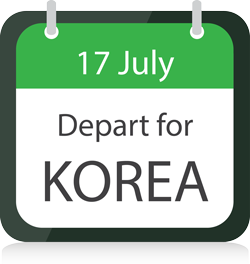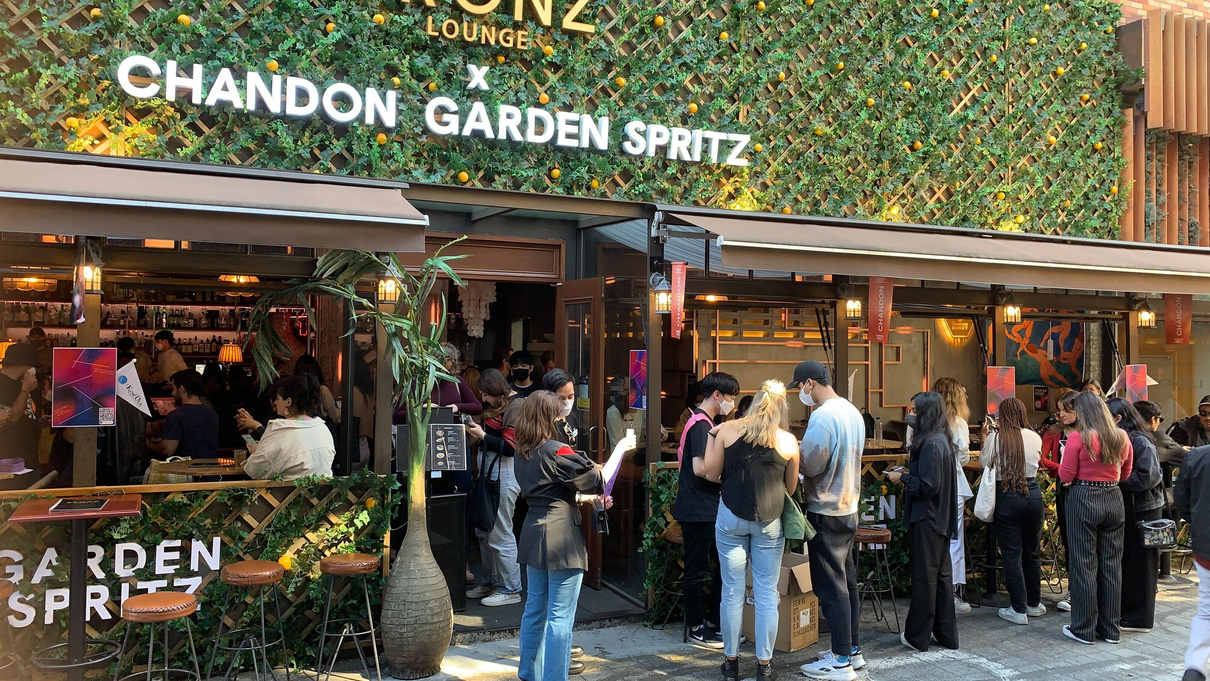Because of this, academies all across the country are hiring thousands of native English teachers to provide students with native-level instruction as well as genuine pronunciation modeling. If you haven’t yet considered academy positions, you’ll find yourself missing out on an incredibly diverse, flexible, and rapidly evolving industry. Here are some reasons why teaching at an academy in Korea might be the best option for you:
1. Teach in Larger Cities and Metropolitan Areas

Private academies primarily exist in the busy downtown quarters of larger cities in Korea. It’s simple marketing: the busier the area, the more students there will be. Academies also generally provide accommodations within walking distance of the school, meaning that you will be living in these areas and have convenient access to supermarkets, restaurants, hospitals, and a plethora of other points of interest.
Public school programs on the other-hand are located primarily in rural areas due to budget cuts and a shifting focus to closing the educational gap nationwide. If you want to work in large metropolitan areas straight away, academies are the way to go.
2. Higher Salaries: Both Starting and Down the Road
Academies pay their teachers more. The average starting salary for academy positions in 2015 was 2.3 million KRW a month. The average public school teacher started at only 2.0 KRW a month, despite requiring higher qualifications such as a TEFL certification.
It is also important to note that because academies are commercial businesses, theoretically the sky is the limit when it comes to salaries. Some teachers that moved from entry-level academies to boutique academies in Seoul, made upwards of 4.0 million KRW a month, almost double that of public school teachers.
Salaries in public schools tend to cap out around 2.7 million KRW, and require years of experience in order to achieve that amount. If salary is a priority for you (don’t worry, we all have students loans too!), then academies should be your first choice.
3. Be a Part of a Team: Teach Alongside Other Expats
Most academies hire multiple native English teachers. This can make a huge difference for new teachers that are trying to adjust to living in a new country. This allows you to be able to ask current teachers for teaching advice, get the low down about your city, as well as get help about all the other things you’ll need to learn to settle down.
Having coworkers that were once in your same situation can make the assimilation process a lot easier and stress-free.
4. More Flexibility for Those with Special Situations
Everyone’s own situation is unique and different. Because academies don’t fall under layers of bureaucracy and instead directly control who they want to hire, those with special circumstances will find a lot more flexibility with academies due to agencies being able to negotiate directly.
Those that want to live and teach with their boyfriend/girlfriend, bring a pet, or have other factors that they are concerned about, can all be communicated to the employer by the recruiting agency.
5. Easier Application Process

With public school programs on average taking 7 months to go through the application process as well as requiring things like letters of recommendation and TEFL certifications, academy teachers often laugh at how hard public school teachers have it.
Agencies like Korvia will present candidates to academies that are available, and if the academy likes the applicant, they will schedule a Skype or face-to-face interview with the teacher. If hired, the agency then helps the teacher with the contract signing, the visa process, and travel arrangements. No waiting for application periods to begin, initial document aggregation, or rushed final documents submission. When you’re ready, we make it known that you’re available.
Those that simply want to come to Korea as soon as possible, will find academies a lot more attractive.
6. Positions Available Throughout the Year
Sometimes March and September just aren’t the ideal start dates for every person. Positions for academies open year-round, forcing you not to have to abide by a strict spring or fall intake. This is perfect for those that want to to get to Korea as soon as possible rather than having to perfectly time their documents for only two intake periods a year.
It’s simple: If you have a prior engagement or important year event you need to attend before you wish to teach, only consider positions that start after. Being able to start the contract you want, when you want, can make the position searching and visa process a lot less stressful.
Conclusion
To summarize, flexibility might be the biggest selling point of private academies. Being able to compare position benefits and pay, live with your significant other as well as be able to start any time during the year make it a no brainer for many. It’s also one of the best options for those that are just looking to get their foot in the door in this competitive industry and not have to go through all the hurdles to do so with public school programs like EPIK and GEPIK.
—
Featured images courtesy of Freepik (Cityscape, Piggy Bank, Team, Young Professional, Calendar)






![[Korvia 2018 Fall Party] Parties, Prizes and New Achievements](https://www.korvia.com/wp-content/uploads/2018/10/IMG_2116.jpg)


what are the requirements?
What are the requirements?
Do you accept Filipino as a teacher?
Hello Zyera,
Unfortunately, we can’t help Filipino teachers for the moment due to the Korean immigration’s visa regulations.
Have a great day.
I am apart of a religious group that usually has meetings on a specific time every week. Moving to Korea, I would need to find one of these meetings in English and be able to get off work on time (before 18:30)
Meaning I would have cities picked out that hold those meetings and need off at that time.
When applying to Hagwons is it like public school? Will I have no idea what to expect until I get there?
Or can this be placed on my Application, Resume, Interview and I can be moved on to the next available school if the last school didn’t want me? (before Hiring)
Me too, I was wondering the same thin….
Here is the requirement for teaching English in South Korea.
https://www.korvia.com/korvia-application-agreement-page/
Do you accept Indian teachers?
We can’t accept Indian teachers due to the Korean immigration regulation.
No, we don’t. Korvia can’t help Indian teachers due to Korean immigration regulation.
Good day,
Are you currently accepting and processing applications from South African candidates?
Where can I see the benefits (housing, flight,etc) for teaching at a private academy? I don’t see it on the website.
Do you accept Puertorican teachers?
In order to be eligible for an E2 visa, you have studied in one of the seven designated countries from 7th grade until university for a minimum of 10 years.
I’m really confused. I’m currently working for EPIK and would like to continue working for Epik but the salary us too low. I have so many financial obligations. Another problem, I’m getting married soon so I want to move to a specific city so I can be closer to my husband. I really don’t know which option is best for me. Because with Epik if I move from this POE I will have to re-apply and I might not get the specific city I want. Do you perhaps do school direct application for public schools?
Hello,
You will have to check out our job board to see if there are any public school positions that would be near you or in your area.